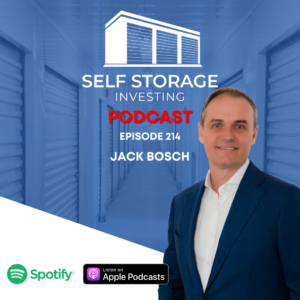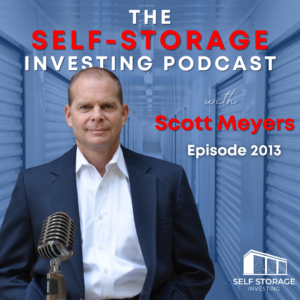Real estate investment is a proven and reliable approach to generating passive income streams. Real estate is the most common item in almost all millionaire portfolios. Properties are capable of generating stable returns and paving the way toward wealth.
John Bowens is one of the most sought-after and respected educators in the self-directed Individual Retirement Account (IRA) industry. He has been investing in real estate for fifteen years and is currently a senior manager at IRA custodian equity trust company.
John has trained over 50,000 investors nationwide during more than 300 workshops and classes, both in-person and online, where he spreads the message about the power of building tax-free wealth and leaving a lasting legacy by investing in what you know best. He also contributed to the book Self-Directed IRAs: Building Retirement Wealth Through Alternative Investing.
We’ll share John’s knowledge and skills to show you how to invest well using your retirement accounts.
What Can You Invest in?
A self-directed IRA is similar to a traditional Roth IRA. In other words, it’s a vehicle you can use to save money for retirement. You can invest in any option allowed by law. It is possible to transfer existing funds between IRAs, and this also applies to savings in a dormant 401k account.
Usually, there are restrictions on what you can invest with regular retirement accounts. Mutual funds, stocks, or bonds are allowed options. In case you want to take advantage of other choices such as precious metals, private companies, and real estate assets, you should transfer the funds in your current IRA into a self-directed IRA.
It is not possible to manage this independently. There should be an IRA custodian to oversee the transactions, which in most cases are banks or legally IRS-licensed organizations. They will keep the records and other IRS reporting requirements.
Advantages of a Self-Directed IRA
- Tax advantages. According to self-directed IRA rules, If you use yours to buy a property, your contributions can grow tax-deferred.
- Protection from creditors. Under the Bankruptcy Abuse Prevention and Consumer Protection Act, one million dollars in self-directed IRA funds may be exempt if you have filed for bankruptcy in a financial emergency. Therefore, your funds are safe from creditors.
- Flexibility. Unlike traditional retirement accounts, there is a wide range of investment options that you can choose from. This allows you to diversify your portfolio and reduce likely risks.
- Reduced expenses. You can form a limited liability company (LLC). In return, you get checkbook control. Costs will be reduced since you will only have to seek approval from your trustee or IRA custodian.
Disadvantages of a Self-Directed IRA
- You’re the active party. A custodian will not perform due diligence on your transactions. Therefore, you are the active element and should perform your own due diligence.
- Paperwork. As mentioned earlier, a certified IRA custodian is required to manage your retirement account. All transactions should be approved by the custodian. The paperwork associated with these processes can be time-consuming.
- Potential taxes. It’s possible that the IRS may classify some of the income earned from the retirement account as business income. In this case, the income earned from your IRA may be taxable based on Unrelated Business Income Tax.
How Can I Use My 401k and IRA to Invest in Real Estate?
Let’s say you have $300K in an IRA, and you plan to buy a property. Real estate investing is not allowed by the bank that serves as your IRA custodian. Here’s what you should do:
Open a Self-Directed IRA
You can do this online, and then you will need to transfer your IRA balance from your current custodian to a new one. In the meantime, you can search for the right property for your investment. With the help and guidance of a professional agent, you can find a property that fits your budget.
Make the Purchase
Once the money is in your self-managed IRA and you have found the property that meets your requirements, your realtor will make you an offer and hire an escrow company to open the escrow account. There are several ways to finance the purchase: debt financing, partnerships, or outright purchase.
The next step is to start the purchase process by asking your custodian to wire the deposit. You should review and approve all the paperwork, and then your self-managed IRA custodian will confirm the documents and transfer the purchase amount from your self-managed IRA to the escrow account. Now you own the property.
Rent Out the Property
The next steps are finding the right tenants, renting out the property, and adding rental payments to your self-directed IRA.
Things to Consider
If you have decided to buy a property with your self-directed IRA money, there are some rules that you should consider.
It isn’t possible to use such a property for personal use. This restriction also applies to other components of a property, such as furniture. No family member can sell you a property.
The fund money should be used to cover all costs associated with the property. You cannot pay the expenses directly. It is possible to add more funds or maximize contributions to an IRA to cover the costs. The income generated by a self-directed IRA-owned property should also be returned to the retirement account.
Types of Property You Can Invest In
If you have decided to invest in real estate with your self-directed IRA funds, there are a variety of options:
- Commercial properties. This is a lucrative approach to increasing your balance. Self-storage facilities, office buildings, stores, etc., are a few examples in the broad spectrum of commercial properties.
- Rental properties. Multifamily properties are often the right choice when it comes to generating income streams.
- Mortgage notes. You can use your funds to lend money to builders, home buyers, etc. Via this method, you facilitate transactions for other investors while making a profit.
- Foreign real estate assets. Considering the tax advantages of an overseas market, this can be an attractive option.
- REO (real-estate owned) properties. These are properties that have fallen under the ownership of a mortgage lender or investor (usually a bank). It is possible to use self-managed IRA money to purchase REO properties. They are reasonably priced because banks want a hassle-free process.
Outside of real estate, your money can also be used to buy tax lien certificates, tangible asset deeds, and trust deeds. You can also invest in cryptocurrencies and precious metals.
What to Look Out for in 2021
According to John’s professional opinion, with so much information now being disseminated online in this field, it is much easier for an everyday person to access alternative investments. Whereas, pre-2015, it was much more difficult.
Still to this day, however, there are challenges when it comes to certain private assets. For example, if you’re not accredited, you may not be able to invest in certain types of deals. There are other platforms and avenues where you can still participate unaccredited, however.
And there’s so much educational information out there for individuals to gain access to and determine how they can self-direct their portfolio. And that leads us to the whole concept of being able to self-direct your retirement account.
This whole possibility is undoubtedly becoming more mainstream. John thinks we’re going to see more infrastructure, support, and money into that marketplace, translating into more opportunities.
He said on this topic, “I encourage folks to make sure they plug themselves into professional organizations like equity trust because that ultimately can give them some direction and guidance on what’s going to happen in the future. The private markets will continue to thrive in comparison to the public markets. It doesn’t mean you shouldn’t invest in public assets. It’s just important to understand that for the first time, the private markets have surpassed the public markets, and there’s got to be a good reason for that.”
John explains the first thing to do is collect as much data as possible. A lot of information, education training, etc., can be found online, including on YouTube, social media platforms, and numerous websites. You can find hundreds of videos on a variety of different self-directed IRA-related topics. Subscribe to newsletter services, and you’ll get access to upcoming webinars and other courses. John adds, “We have agents that will talk folks through their specific situation, what they’re looking to invest in and how that can work with a self-directed IRA.”
The Bottom Line
Real estate is a lucrative and recession-proof investment that can generate long-term returns. A smart move to start is to use your IRA funds to buy properties.
Self-directed IRAs give you much more control over investments than traditional IRAs. You also have the freedom to choose from a wide range of options.
To be successful, you should familiarize yourself with the ins and outs of this niche. If you mishandle any of the matters associated with the process, you could end up disqualified and subject to penalties. To avoid tax pitfalls, all of your investing transactions, including buying, selling, managing, and financing a property, should be approved by a professional custodian.
Do you still have questions? No worries. John Bowens and his colleagues are ready to share their professional tips with you and help you make a lucrative investment using your self-directed IRA. If you want to learn more about creating passive income, check out all the information you need here.







